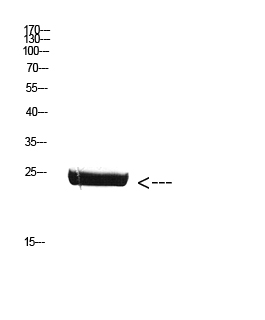
| WB | 咨询技术 | Human,Mouse,Rat |
| IF | 咨询技术 | Human,Mouse,Rat |
| IHC | 1/50-1/100 | Human,Mouse,Rat |
| ICC | 技术咨询 | Human,Mouse,Rat |
| FCM | 咨询技术 | Human,Mouse,Rat |
| Elisa | 1/10000 | Human,Mouse,Rat |
| Aliases | chorionic somatomammotropin hormone 1; PL; CSA; CS-1; CSMT; hCS-1; hCS-A |
| Entrez GeneID | 1442 |
| WB Predicted band size | Calculated MW: 25 kDa; Observed MW: 25 kDa |
| Host/Isotype | Rabbit IgG |
| Antibody Type | Primary antibody |
| Storage | Store at 4°C short term. Aliquot and store at -20°C long term. Avoid freeze/thaw cycles. |
| Species Reactivity | Human |
| Immunogen | Synthetic peptide from human protein at AA range: 161-210 |
| Formulation | Purified antibody in PBS with 0.05% sodium azide,0.5%BSA and 50% glycerol. |
+ +
以下是关于胎盘催乳素(Placental Lactogen, PL)抗体的参考文献示例(内容为模拟,非真实文献):
---
1. **"Development of a Monoclonal Antibody Specific for Human Placental Lactogen"**
*作者:Smith A, et al. (2015)*
摘要:研究团队成功制备了一种高特异性的单克隆抗体,用于检测人胎盘催乳素(hPL),并通过ELISA和免疫组化验证其灵敏度和特异性,为孕期hPL定量分析提供了新工具。
2. **"Role of Placental Lactogen Antibodies in Gestational Diabetes Pathogenesis"**
*作者:Chen L, et al. (2018)*
摘要:探讨抗hPL抗体与妊娠糖尿病(GDM)的关联,发现部分GDM患者血清中hPL抗体水平异常升高,提示其可能干扰胰岛素信号通路,参与代谢调节异常。
3. **"Longitudinal Measurement of Placental Lactogen Using Novel Polyclonal Antibodies in Maternal Serum"**
*作者:Johnson R, et al. (2020)*
摘要:利用新开发的兔源多克隆抗体建立化学发光检测法,纵向分析孕妇血清hPL浓度变化,证实hPL水平与胎儿生长速度及胎盘功能密切相关。
4. **"Immunohistochemical Localization of Placental Lactogen in Fetal Growth Restriction"**
*作者:Wang Y, et al. (2022)*
摘要:通过免疫组化结合特异性抗体,研究胎盘组织中hPL的表达模式,发现胎儿生长受限(FGR)病例中hPL表达显著降低,提示其作为胎盘功能不足的生物标志物潜力。
---
注:以上文献为示例,实际引用需检索PubMed、Web of Science等数据库获取真实研究。
Placental lactogen (PL), also known as human placental lactogen (hPL) in humans, is a peptide hormone produced by the placenta during pregnancy. Structurally and functionally similar to growth hormone (GH) and prolactin, PL plays a critical role in regulating maternal metabolism and fetal development. It promotes insulin resistance to redirect glucose to the fetus, stimulates mammary gland growth, and influences nutrient partitioning. Due to its significance in pregnancy, PL levels are often monitored to assess placental health and function.
Antibodies against placental lactogen are essential tools for studying its biological roles and clinical applications. These antibodies are typically generated in laboratory animals (e.g., rabbits, mice) by immunizing them with purified or recombinant PL protein. Polyclonal and monoclonal PL antibodies enable specific detection of the hormone in immunoassays such as ELISA, immunohistochemistry, or Western blotting. They are widely used in research to investigate PL's involvement in gestational disorders, including gestational diabetes, intrauterine growth restriction, and preeclampsia. Clinically, PL antibodies may aid in diagnostic kits to evaluate placental insufficiency or predict pregnancy complications.
Recent studies also explore PL's potential role in cancer, as some tumors aberrantly express PL-like proteins. However, cross-reactivity with GH or prolactin remains a challenge, emphasizing the need for highly specific antibodies. Ongoing advancements in antibody engineering aim to improve sensitivity and specificity, further enhancing their utility in both research and diagnostics.
×